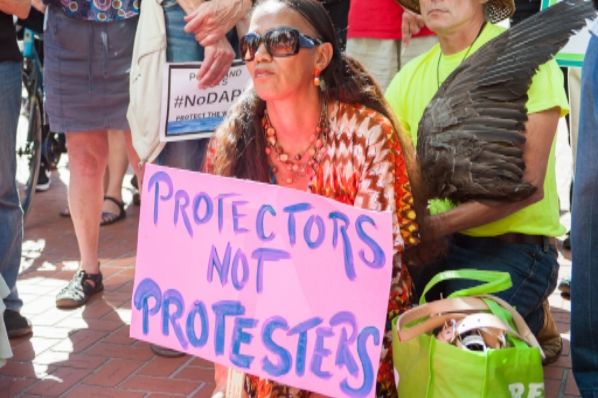The standoff over the North Dakota pipeline is typically portrayed as a the Standing Rock Sioux' attempting to protect their tribe's cultural heritage against energy industry encroachments.
North Dakota Congressman Kevin Cramer says that is not the issue at all. Fed up with being preached at by activists, musicians and progressive politicians, Cramer explains what he sees as the real issue in today's Wall Street Journal: a lawless White House that ignores the rules.
For starters, the land the pipeline would cross doesn't belong to the Standing Rock Sioux. It belongs to other private owners and the U.S. government. Cramer writes:
To suggest that the Standing Rock tribe has the legal ability to block the pipeline is to turn America’s property rights upside down.
Two federal courts have rejected the Sioux' claims and other tribes, opting for adjustments to the project rather than termination, have not joined the protest. Cramer also debunks the claim that the pipeline protest concerns the tribes water supply, as the pipeline will exceed water safety requirements.
The climate change argument goes out the window when one realizes that the oil that would use the pipeline is already being shipped through less environmental-friendly modes of transportation. None of these frequently made arguments against the pipeline really works.
Cramer writes:
So what is the pipeline dispute really about? Political expediency in a White House that does not see itself as being bound by the rule of law. The Obama administration has decided to build a political legacy rather than lead the country. It is facilitating an illegal occupation that has grown wildly out of control. That the economy depends on a consistent and predictable permitting regime seems never to have crossed the president’s mind.
There is no doubt that Native American communities have historically suffered at the hands of the federal government. But to litigate that history on the back of a legally permitted river crossing is absurd. The Obama administration should enforce the law, release the easement and conclude this dangerous standoff.
A new administration is set to come in with a new approach.
But it will have to deal with a lot of myths–in this case of tribal heritage being threatened on tribal lands–that has served the previous administration.


